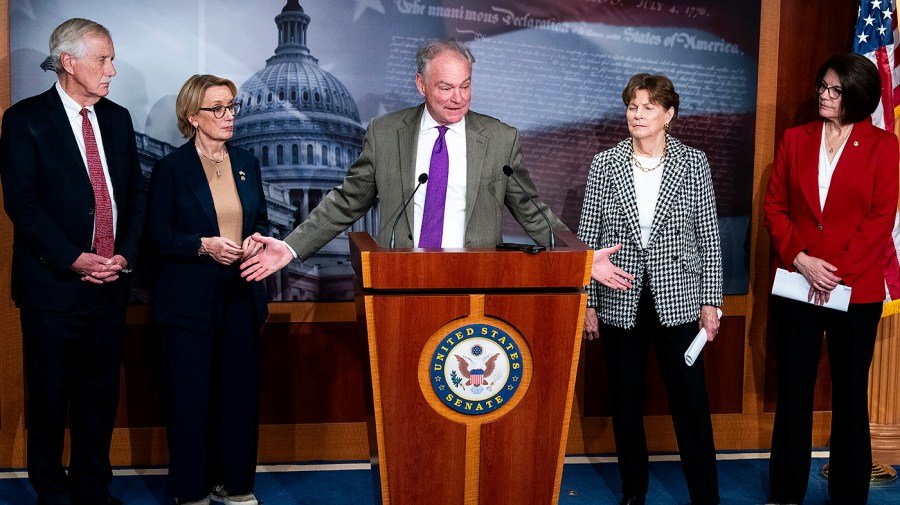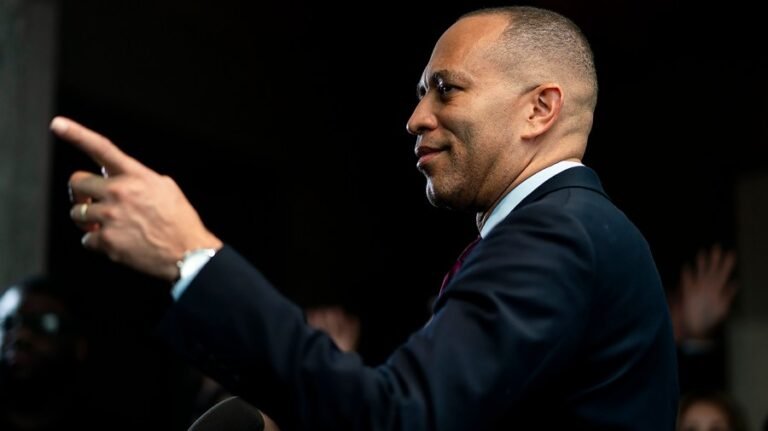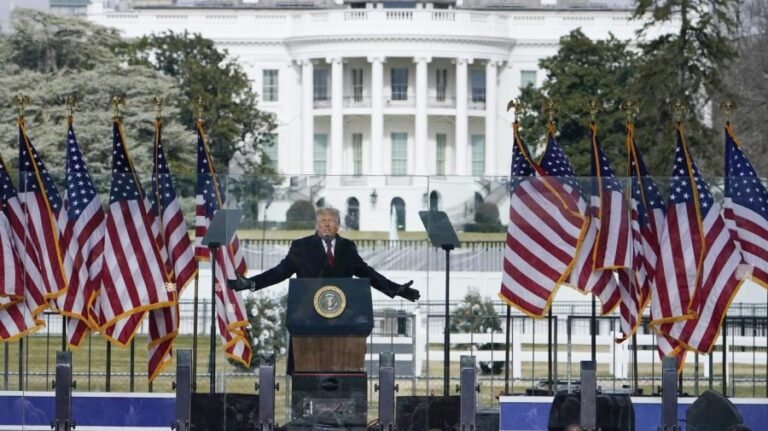
Eight members of the Senate Democratic caucus voted Sunday evening to proceed to a House-passed continuing resolution, taking a major step toward ending the 40-day shutdown.
The Senate voted 60-40 to advance the House bill, which will serve as the legislative vehicle for a bipartisan deal to fund military construction, veterans’ affairs, the Department of Agriculture and the legislative branch through Sept. 30 and the rest of government through Jan. 30.
It sets the stage for the House to return to Washington later this week to vote on the bill in hope of getting to President Trump’s desk for his signature.
Here are the Democrats who voted to break the logjam in the Senate:
Sen. John Fetterman (D-Pa.)
Fetterman has been the most outspoken critic of the Senate Democratic leadership’s strategy to block a clean, House-passed continuing resolution to fund the government in an attempt to get Republicans to agree to an extension of enhanced health insurance premiums.
Fetterman has argued for weeks that Democrats didn’t have any real leverage in the government funding battle, even though he supports the Democratic leadership’s desire to extend insurance subsidies under the Affordable Care Act (ACA).
The Pennsylvania freshman was especially outspoken in voicing concern about the nearly 42 million Americans who are at risk of going hungry because of the expiration of Supplemental Nutrition Assistance Program (SNAP) benefits.
Sen. Angus King (I-Maine)
King is an independent who caucuses with Democrats and supports extending health insurance premiums, but he expressed his concerns at the start of the shutdown that failing to fund government would hand too much power to Trump.
“As serious as the health insurance crisis is, I believe the shutdown itself and the additional powers it conveys to Donald Trump and his henchmen, is the greater risk. The greatest challenge our country faces right now is the accelerating slide toward authoritarianism,” King said last month.
Sen. Catherine Cortez Masto (D-Nev.)
Cortez Masto voted for the House-passed bill to fund government in late September and has consistently voted to reopen the government since it shutdown more than five weeks ago.
“I cannot support a costly shutdown that would hurt Nevada families and hand even more power to this reckless administration,” she said on Sept. 30, when she voted to avoid the shutdown.
She warned that a government shutdown would force tens of thousands of Nevada military personnel, union members, law enforcement agents and military nurses to work without pay.
She also said a shutdown would cost the nation’s travel and tourism economy $1 billion in lost revenue a week.
Sen. Jacky Rosen (D-Nev.)
Rosen has talked tough throughout the shutdown about getting Republicans to address what Democrats call the “crisis” of rising health care premiums.
She hailed a promise from Senate Majority Leader John Thune (R-S.D.) to vote in December on a bill to extend generous subsidies under the Affordable Care Act as a significant concession.
“The concession we’ve been able to extract to get closer to extending the Affordable Care Act tax credits is a vote on a bill drafted and negotiated by Senate Democrats. Let me be clear: I will keep fighting like hell to ensure we force Republicans to get this done,” she said Sunday.
Sen. Dick Durbin (D-Ill.)
Durbin, the Senate Democratic whip and the No. 2-ranking member of the Senate Democratic leadership, voiced his concern over the impact of the shutdown on federal workers last month when the American Federation of Government Employees called on Democrats to pass a clean continuing resolution.
He said on Oct. 27 that the union’s statement had “a lot of impact.”
Durbin on Sunday cited the strain by federal workers who have been required to work without paychecks for more than a month.
“For 40 days — the longest shutdown in U.S. history — federal workers went without paychecks. This includes our air traffic controllers, whose towers were already understaffed. They continued to work 10 hours days, six days per week to keep our airspace safe, with this additional stress at a life-saving job,” he said in a statement.
He does not plan on running for reelection in 2026.
Sen. Jeanne Shaheen (R-N.H.)
Shaheen, a senior member of the Senate Appropriations Committee, played a leading role in negotiating the deal to reopen the government.
Shaheen worked closely with King to assemble a group of as large as 12 Democrats to negotiate an off-ramp to the shutdown.
She touted the agreement with Thune to hold a vote next month on extending the enhanced health insurance premium subsidies.
“This agreement gives Democrats control of the Senate floor — at a time when Republicans control every level of power — on one of our top legislative priorities: Extending the enhanced premium tax credits to make health care more affordable for millions of Americans,” she said in a statement.
Sen. Maggie Hassan (D-N.H.)
Hassan worked closely with Shaheen, her home-state colleague, in recent weeks to reopen the government and set the stage for what she hopes will be “serious, bipartisan negotiations to extend the Affordable Care Act’s expiring tax cuts for health insurance.”
“At a time when families desperately need relief, Washington’s dysfunction is making life harder for families,” she said.
She said she heard “from families” in New Hampshire “about the deep pain the government shutdown has caused.”
She noted the Senate deal will fund SNAP benefits through Sept. 30 and ensure that law enforcement personnel, air traffic controllers and other federal workers get paid.
Tim Kaine (D-Va.)
Kaine represents more than 140,000 federal workers in Virginia and he focused on getting language in the Senate deal to ensure that federal workers who were furloughed during the shutdown get backpay and the more than 4,000 federal employees that the Trump administration attempted to lay off through reductions in force (RIFs) are retained.
Kaine said he wanted to end what he called the “mischief” of the Trump administration during the shutdown and during the period government is funded by a short-term continuing resolution.
He secured language in the deal to ensure that the Trump administration cannot attempt any additional RIFs during the length of the newly drafted stopgap spending measure, which would last through Jan. 30.
“This legislation will protect federal workers from baseless firings, reinstate those who have been wrongfully terminated during the shutdown, and ensure federal workers receive back pay, as required by a law I got passed in 2019,” he said in a statement. “That’s a critical step that will help federal employees and all Americans who rely on government services.”


